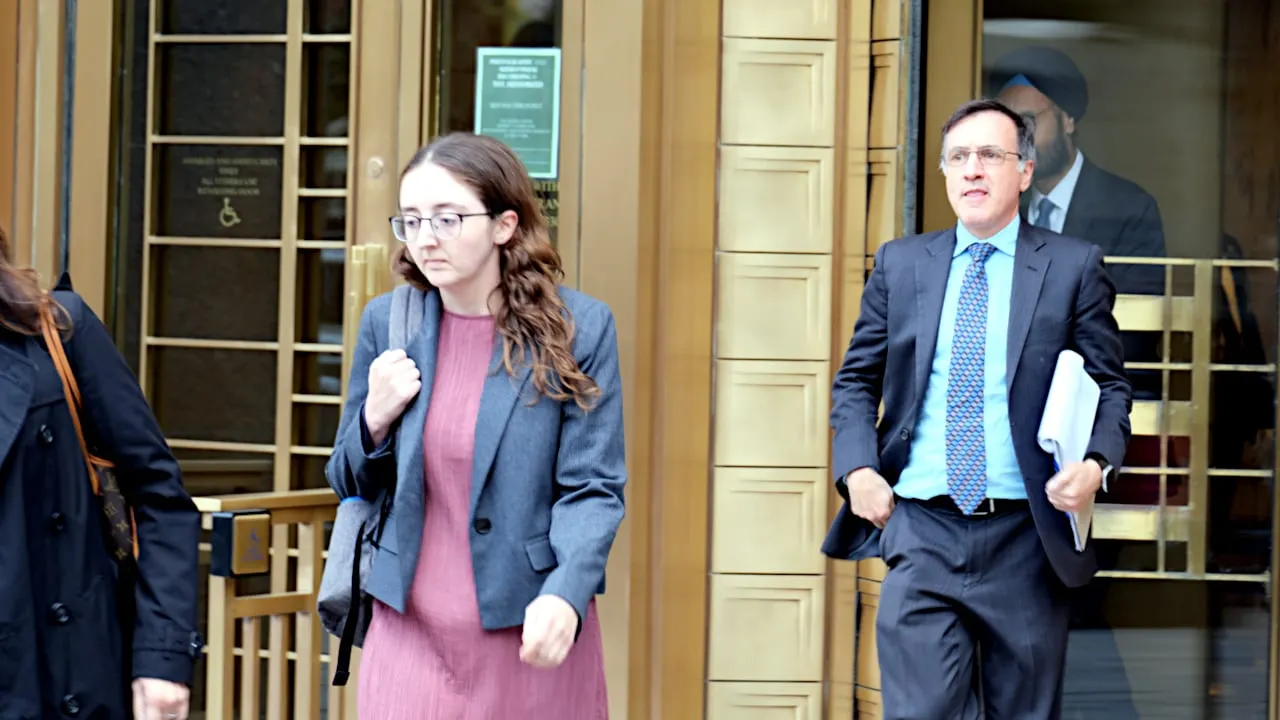'Keep Your Head Down': SBF's Prison Advisor Offers Advice for Caroline Ellison

There are steps that former Alameda Research CEO Caroline Ellison can take to make prison a better experience, consultants told Decrypt.
When former Alameda Research CEO Caroline Ellison reports to prison in just over a month, the atmosphere will be far different from the luxury apartments in the Bahamas that she and other lieutenants to FTX founder and former CEO Sam Bankman-Fried once called home.
As she enters the Bureau of Prisons’ orbit, however, there are steps Ellison can take to better navigate “a black hole” that lacks consistency and compassion, according to Sam Mangel, a white-collar prison consultant, who said he’s advised the former FTX head.
“Being a little fish in a big sea is super important,” he told Decrypt in an interview. “Know what you need to do in order to get the earliest possible release from custody.”
U.S. District Judge Lewis Kaplan sentenced Ellison to two years in prison Tuesday, recommending that the Bureau of Prisons place her in a minimum security facility near her family in Boston, Massachusetts. Though it’s a three-hour drive from the Bay State’s capital, Mangel recommended Ellison seek out the Danbury Women’s Camp in Connecticut.
“It is the best female camp on the East Coast,” Mangel said, adding that a handful of his clients have served at the minimum security facility housing just over 100 inmates.
Compared to the Metropolitan Detention Center (MDC) in Brooklyn, New York, where Bankman-Fried has stayed since his bail was revoked last year, Danbury Women’s Camp has much nicer facilities, Mangel said. Still, he’s heard from other clients in MDC’s so-called protective custody unit that Bankman-Fried is doing relatively well, separated from the general population where “people are routinely beaten, stabbed, molested, [or] extorted.”
Bankman-Fried’s 25-year prison sentence far outweighs Ellison’s, who served as a key witness in his case. Cooperating with the government’s investigation into mismanagement at the defunct crypto exchange, she pleaded guilty to a series of money laundering and fraud charges in 2022.
When Ellison was sentenced, Kaplan ordered her to forfeit $11 billion. Earlier this month, Bankman-Fried, who once dated Ellison, filed an appeal, arguing he was “presumed guilty.”
Mangel said that it’s highly unlikely Ellison will serve two full years in prison before she gets out on supervised release. Under the First Step Act, Ellison is able to earn time credits for taking classes and other productive activities. As those credits erode the time of her stay, she’ll likely become eligible for home confinement or a halfway house after nine months, Mangel said.
“Keep your head down,” he said, “Understand that the staff, they're not your friends. It's a typical government employee that [...] makes less in the year than she might have made in a day.”
Mangel became a prison consultant after serving 20 months in a Miami-based prison camp in 2020. While his “boutique practice” has worked with other crypto clients, his most recognizable patron could be former President Donald Trump’s former economic advisor Peter Navarro.
Larry Levine, founder of Wall Street Prison Consultants and Prison Pink Lady Consultants, said one of the most important things for Ellison will be to “keep her nose clean.”
Levine echoed Mangel’s advice, recommending that Ellison participate in work programs. Regardless, he said time will be taken off her sentence for good behavior, but she could get out on supervised release in a year “as long as she takes whatever stupid little job they give her.”
Levine, who served 10 years in prison for “narcotics trafficking, securities fraud, racketeering, obstruction of justice, and machine guns,” said that Ellison won’t be in prison that long. Because of that, he said, there’s not much she’ll have to prepare for that’s beyond common sense.
“Don't get caught up in drama, don't get caught up in politics,” he said. “Don't rat on anyone for any reason whatsoever. No one's gonna respect a snitch.”
As far as Bankman-Fried and Ellison go, Mangel said both could leverage their knowledge of crypto as teachers, earning extra time credits by sharing their expertise with other inmates. Many likely have no knowledge of crypto beyond what they’ve seen on television, he added.
“Inmates in camps, when a high-profile person comes in, tend to put them on a pedestal and are in awe of them,” Mangel said. “They are envious and jealous, and they want to almost live vicariously through that person.”
Edited by Andrew Hayward
Related News
- The Bigger the AI Model, the More It Will Lie
- ‘Deadrop’ Game Studio Denies Dr. Disrespect’s Claim That He’ll Return
- Solana DeFi Platform Mango Markets Settles SEC Charges Over MNGO Token
- ‘Hamster Kombat’ Token Tops $1 Billion in Trading as TON Survives Massive Airdrop
- Moo Deng Price Nearly Doubles in a Day as Meme Coins Outpace Bitcoin Gains
- Why Is Binance Founder CZ Being Released Two Days Early?
- DOJ Seizes $6 Million Linked to 'Devastating' Crypto Romance Schemes
- Staking Protocol Bug Let Users Swap One Bitcoin for One Ethereum
- BlackRock Bitcoin Holdings Swell to Nearly $24 Billion After Latest Buy
- Witness Says LA 'Godfather' Impersonated FBI to Steal Crypto at Gunpoint
© 2026 DeFi.io